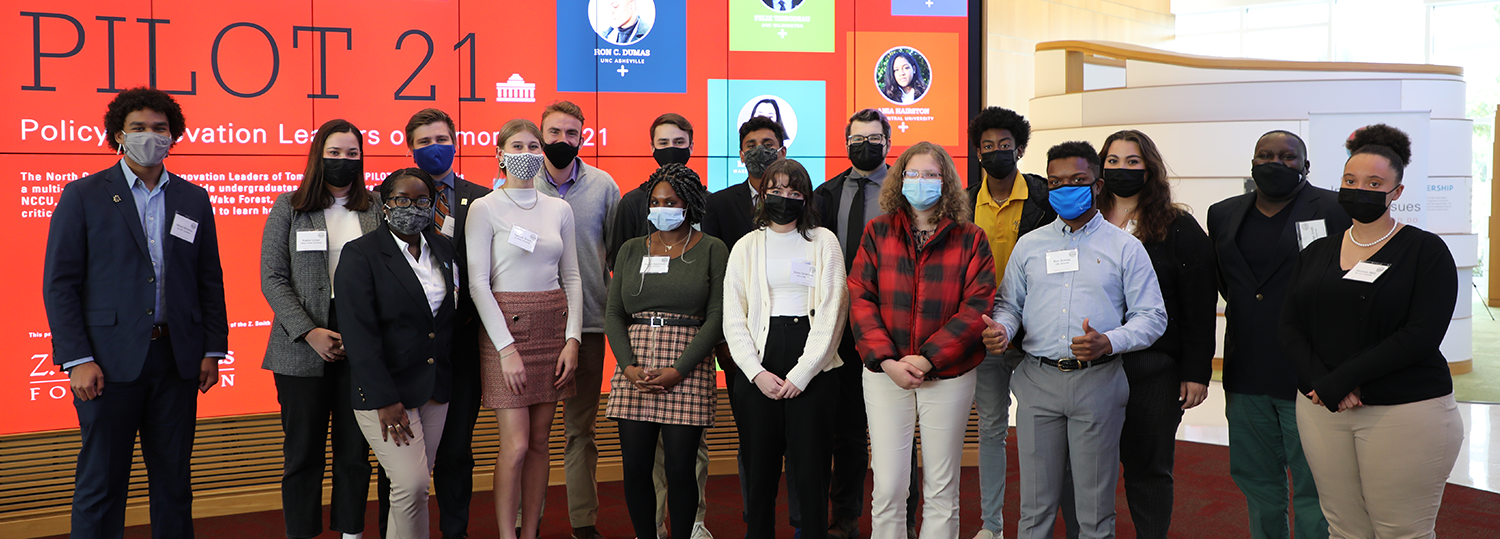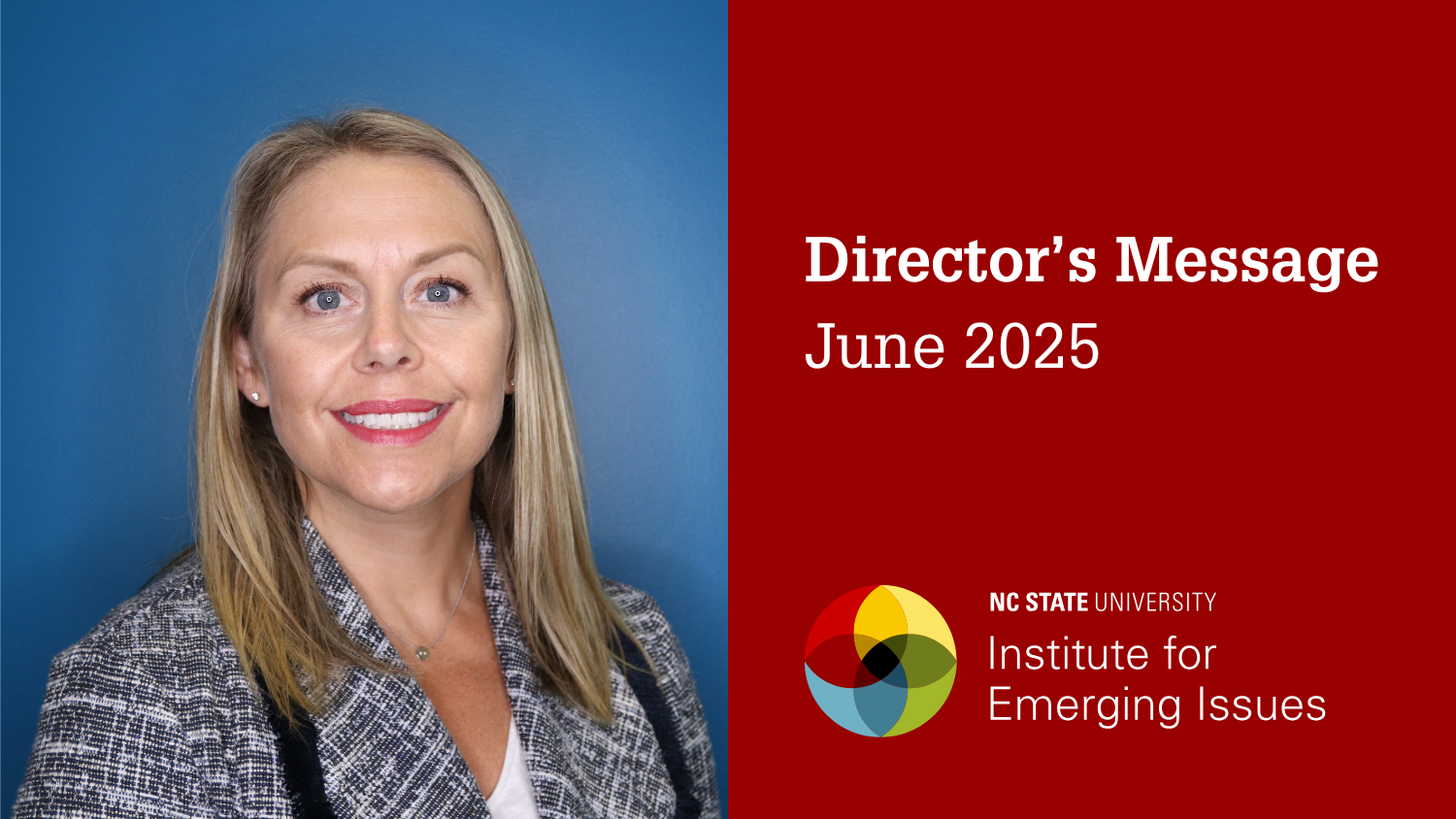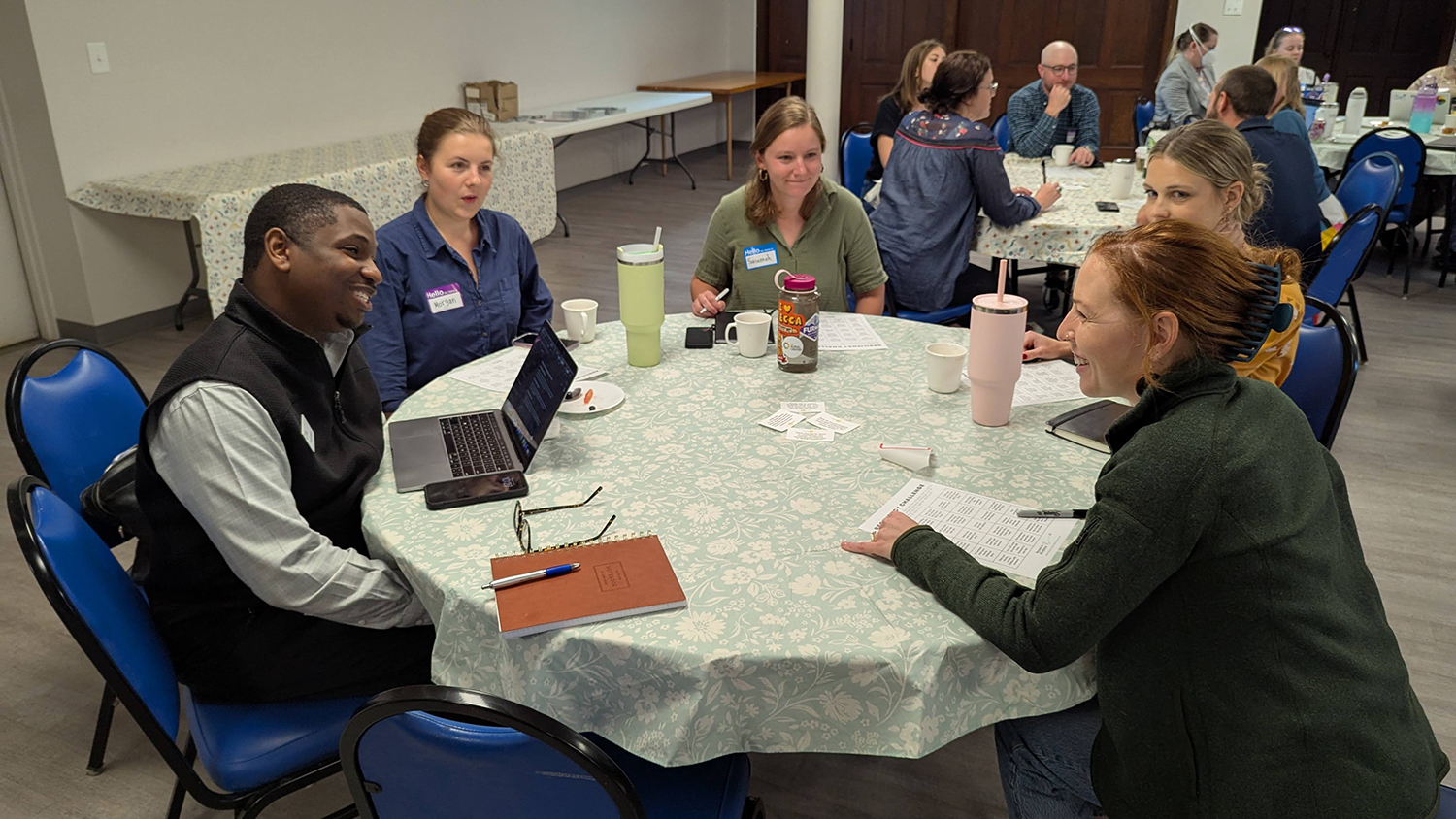Student leaders collaborate on policy recommendation to increase food access on college campuses

Raleigh—Students and faculty from eight NC universities gathered at NC State University’s Hunt Library on Nov. 5 to work collectively on one of the most pressing issues of our time—food insecurity. After a day-long summit where students pitched different policy recommendations, the group came to the consensus to focus future efforts on increasing food access on college campuses. As a group, the students will refine their recommendation and move it forward over the next few months by presenting it to policy leaders.
The students met as part of the inaugural PILOT 21 (Policy Innovation Leaders of Tomorrow) program organized by the Institute for Emerging Issues. The initiative was an effort to encourage cross-campus collaboration between NC universities (Duke, NC A&T, NC State, UNCA, UNC-CH, Wake Forest, Shaw and UNCW).
“Being a part of the PILOT 21 program gave me the opportunity to work with a lot of different students with a lot of different perspectives, to come together and cultivate a broad strategy to address food insecurity on our campuses and in our communities,” said UNC Asheville senior Ron Dumas. “It’s been a great growth opportunity as far as public policy and a great opportunity to work with people and really get something done as a student.”
“PILOT 21 has been a really incredible experience. I really enjoyed meeting a wonderful diverse cohort from so many different places, diverse in experience and knowledge set as well,” said NC State junior Hannah Braun. “I think that food insecurity manifests differently in different places but its effects are the same. I learned a lot about how to apply a unique set of solutions to combat a single issue, which I think is super useful.”
Students heard from many experts in policy and food insecurity throughout the day, including U.S. Rep. Jahana Hayes (CT), Dr. Jack Daly (Duke Sanford World Food Policy Center), Dr. Andrew Smolski (NC State University), Mike Darrow (Feeding the Carolinas), Rep. Zach Hawkins (D-Durham), Sue Hinman (Granville County Commissioner Chair) and Elizabeth Outten (Novant Health).
“I decided to get involved with the PILOT 21 program because I care deeply about community-level policy,” said Duke University junior Aden Klein. ”Policy and government have immense potential to improve the lives of all individuals.”
PILOT 21 is supported by the Z. Smith Reynolds Foundation on behalf of retiring board of trustees member Jane Smith Patterson, who participated in a similar project in the 1960’s when she was an undergraduate at UNC-Chapel Hill. Being part of the effort captivated her interest and launched her into a career of public service.

###
About Institute for Emerging Issues
The Institute for Emerging Issues (IEI) at North Carolina State University is a nonpartisan public policy organization focused on the state’s vibrancy and economic competitiveness. Since 1986, the Emerging Issues Forum has attracted leaders in business, education and public policy to discuss issues with profound implications for North Carolina’s future prosperity. For more than three decades, the Forum has helped catalyze the policy reforms, public investments and other proactive responses required to build an enduring capacity for progress in North Carolina.
- Categories:


